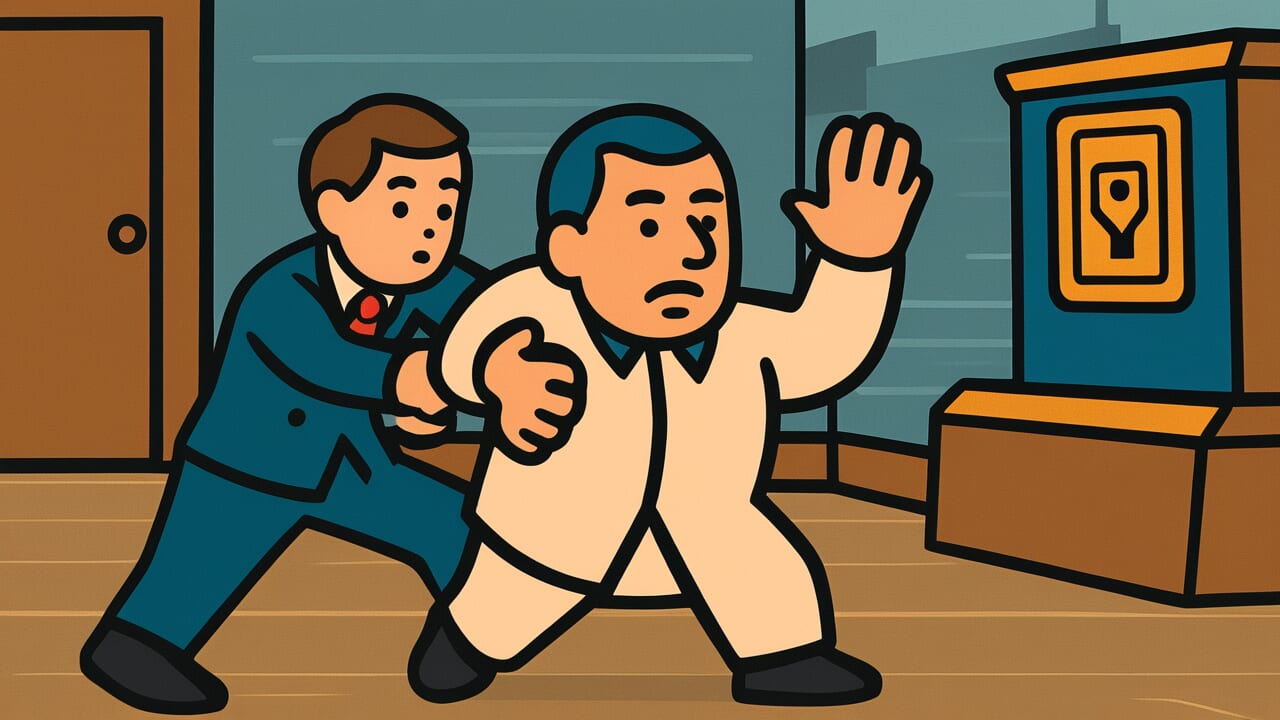How to Read “Caring for the master but ruining the lord”
Oyakata omoi no shuta oshi
Meaning of “Caring for the master but ruining the lord”
“Caring for the master but ruining the lord” means caring too much about your master and actually causing them trouble instead.
This proverb describes situations where strong goodwill or loyalty ends up hurting the very person you want to help.
For example, you might try too hard to help your boss and accidentally mess up their judgment. Or you might make their position worse without meaning to.
This expression emphasizes the irony of good intentions backfiring. It’s not just about making mistakes.
The lack of bad intentions makes the result even more striking.
People still use this proverb today in workplaces and homes. They might say “that person is caring for the master but ruining the lord.”
Caring about someone is noble. But when that feeling becomes self-centered, problems arise.
When you act without understanding what the other person truly wants, you fall into the situation this proverb describes.
Origin and Etymology
The exact origin of this proverb isn’t clearly recorded in historical documents. However, the structure of the phrase reveals an interesting background.
“Oyakata” (master) was a term used in Edo period craftsman society. It referred to masters who had apprentices and servants working under them.
Carpenters, plasterers, blacksmiths, and various other craftsmen used this title. “Aruji” (lord) also means master.
The fact that both words appear together is a key feature of this proverb.
The word “taoshi” (ruining) literally means to knock down or topple. It carries a strong meaning.
The phrase expresses the ironic situation where caring too much about your master actually causes them trouble. It might even put their position in danger.
This proverb likely emerged from an era when master-servant relationships were strict. Society valued loyalty and devotion as virtues.
But our ancestors wisely noticed that too much virtue could backfire. They understood the difficulty of human relationships.
The proverb captures a universal truth about human society. Good intentions don’t always lead to good results.
It expresses this truth through the language of the craftsman’s world.
Usage Examples
- He negotiated with clients on his own, thinking it would help the president. It was truly caring for the master but ruining the lord, and he caused huge losses for the company.
- The son made his father quit work to give him an easier life. But the father lost his purpose and his health declined. It became caring for the master but ruining the lord.
Universal Wisdom
“Caring for the master but ruining the lord” touches on one of the most difficult truths about human relationships. Love and good intentions alone cannot make people happy.
This is a painful reality.
When people care deeply about someone, they want to do something for that person. This feeling itself is beautiful and pure.
But here lies a deep contradiction in human relationships. The stronger your feelings for someone, the more trapped you become in your own perspective.
You can’t see what the other person truly needs.
This proverb has been passed down through generations because this contradiction is a timeless human challenge.
Parents become overprotective because they care about their children. Subordinates interfere too much because they admire their bosses.
Friends become pushy because they worry. The forms differ, but the same structural problem repeats.
Our ancestors saw that good intentions and good results don’t always connect in a straight line.
Caring about someone and understanding them are two different things. This wisdom is essential for mature relationships.
If you truly care about someone, you also need the humility to question your own good intentions.
When AI Hears This
When subordinates try too hard for their boss, the organization breaks down. This is the same phenomenon as “overshoot” in control engineering.
When you want to raise temperature, heating too rapidly makes you overshoot the target and lose control. Systems have appropriate response speeds.
Input that exceeds this speed causes destruction.
What’s interesting is that this proverb captures “the amplification effect created by chains of goodwill.”
When subordinate A works hard, the boss is pleased. Seeing this reaction, subordinate B also works hard.
This positive feedback amplifies exponentially. For example, 1.1 times effort repeated 10 times becomes about 2.6 times.
But human bodies and organizational resources only increase linearly. A structural mismatch occurs between the amplification speed of effort and the supply speed of resources.
Even more noteworthy is the mechanism where “local optimization destroys global optimization.”
When each subordinate tries to achieve 120% results in their area, the boss must respond to all of them. The load increases multiplicatively.
If three subordinates work 1.2 times harder, the boss’s load becomes 1.2 to the third power, about 1.7 times.
The same problem exists in modern AI development. When each team maximizes performance, the entire system becomes unpredictable.
People in the Edo period saw that goodwill itself is the greatest danger that makes critical points invisible.
Lessons for Today
This proverb teaches modern people the importance of recognizing the boundary between “consideration” and “imposition.”
Every day, we try to do something for someone. For family, for friends, for colleagues.
These feelings are precious. But this proverb gently warns us.
Caring feelings alone are not enough.
Actions that truly benefit others start with listening to them. What you think is good and what they actually need don’t always match.
That’s why it’s important to pause before acting. Ask yourself, “Is this really what they want?”
Developing this habit matters.
Modern society creates environments where goodwill easily runs wild. Unnecessary advice on social media, excessive consideration at work.
But if you keep this proverb in mind, you’ll have room to step back and think.
True consideration means respecting the other person’s autonomy. It means offering help in the right form at the right time.
May your goodwill become a force that truly supports others.



Comments